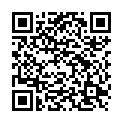|
|
|
| Module code: DFMME-1a2 |
|
|
1V+2SU+1P (4 hours per week) |
|
5 |
| Semester: 1 |
| Mandatory course: yes |
Language of instruction:
German |
Assessment:
Written exam 70% (120 min.)
Project 30%
[updated 04.11.2020]
|
DFMME-1a2 (P610-0446) Mechanical Engineering, Master, ASPO 01.10.2024
, semester 1, mandatory course, Specialization Industrial Production
MAM_19_IP_1.09.PS1 (P241-0075, P241-0076) Engineering and Management, Master, ASPO 01.10.2019
, semester 1, mandatory course, Specialization Industrial Production
MAM_24_IP_1.09.PS1 Engineering and Management, Master, SO 01.10.2024
, semester 1, mandatory course, Specialization Industrial Production
|
60 class hours (= 45 clock hours) over a 15-week period.
The total student study time is 150 hours (equivalent to 5 ECTS credits).
There are therefore 105 hours available for class preparation and follow-up work and exam preparation.
|
Recommended prerequisites (modules):
None.
|
Recommended as prerequisite for:
|
Module coordinator:
Prof. Dr. Jürgen Griebsch |
Lecturer: Prof. Dr. Jürgen Griebsch
[updated 08.07.2019]
|
Learning outcomes:
After successfully completing this module, students will be familiar with the different components of plants, their mode of operation and their interaction in complex production systems.
Students will be able to adapt, modify and refine their decisions in a process-, product- and project-specific manner.
They will be familiar with the demands of industry with regard to modern production systems and will be able to take these into account in development projects.
Students can orient themselves on the current state of the art and take this into account when designing systems.
Students will be able to work in a team, i.e. create schedules and evaluate resources.
They will be able to organize processes within a project group and also to manage internal and external communication.
[updated 04.11.2020]
|
Module content:
Project content 1:
- Designing production units, so-called Smart Cubes as autonomous production units
- System automation
- Principles of control systems
- Basics of robotics
Basic principles of conceptual design with knowledge of project contents 1 are established, current technical implementations, as well as tendencies and emerging solutions including those from information technology (keyword: open/proprietary systems).
Introduction to risk assessment:
- CE / machine safety, FMEA
- QMS / certification
- Norms, (patents)
[updated 04.11.2020]
|
Recommended or required reading:
Gevatter, Grünhaupt; Handbuch der Mess- und Automatisierungstechnik in der Produktion; Springer Verlag, 2006; ISBN: 978-3-540-21207-2
Overmeyer, L.; Steuerungstechnik _ Eine praxisnahe Einführung; Springer Verlag, 2020; ISBN 978-3-540-36043-8
Haun, M.; Handbuch Robotik _ Programmieren und Einsatz intelligenter Roboter, Springer Verlag 2013; ISBN 978-3-642-39858-2
Hesse, S., Malisa, V.; Taschenbusch Robotik _ Montage _ Handhabung; Hanser Verlag, 2016; ISBN: 978-3-446-44365-5
Jakoby, W.; Qualitätsmanagement für Ingenieure _ Ein praxisnahes Lehrbuch für die Planung und Steuerung von Qualitätsprozessen; Springer Verlag, 2019; ISBN: 978-3-658-26595-3
Linß, G.; Qualitätsmanagement für Ingenieure; Hanser Verlag, 2018; ISBN: 978-3-446-44042-5
[updated 04.11.2020]
|

